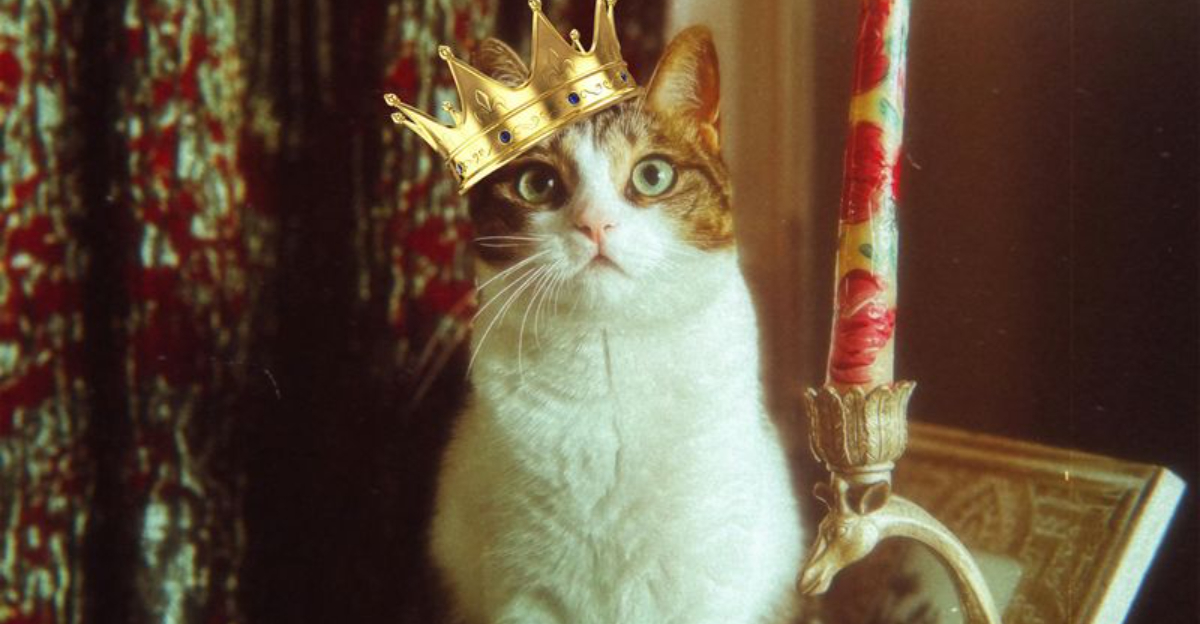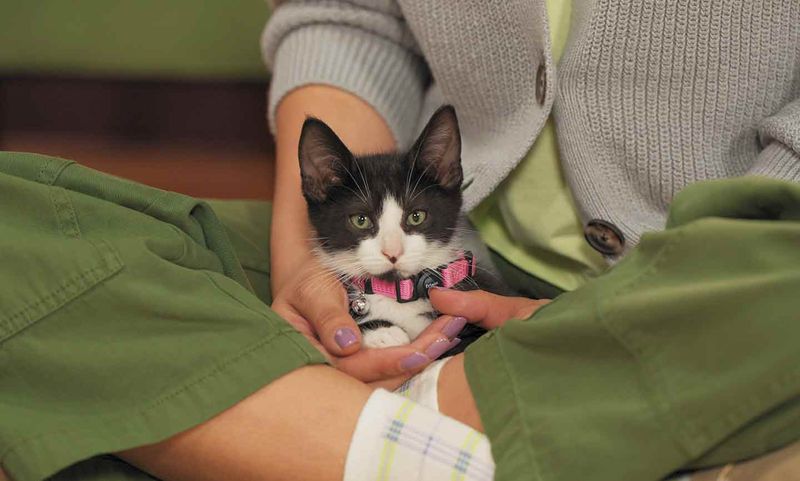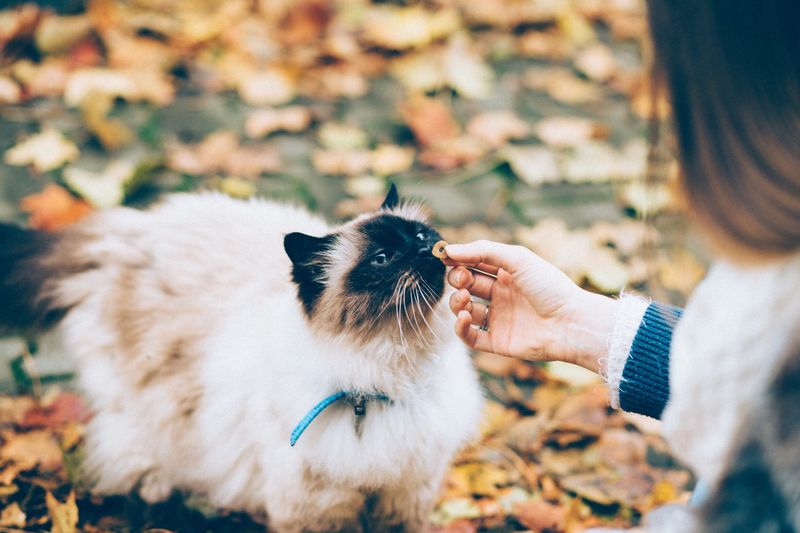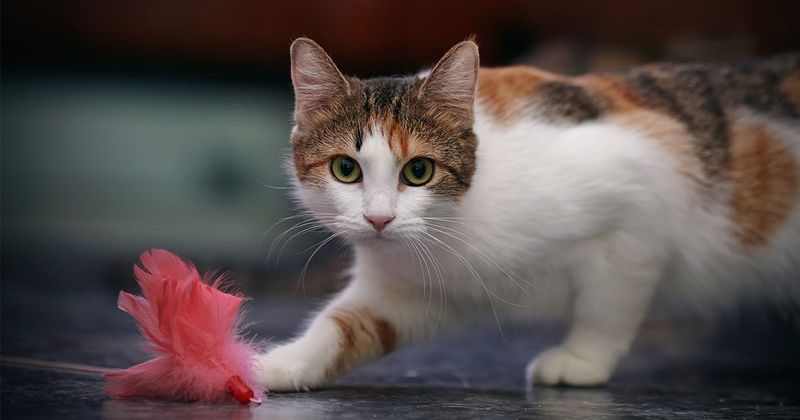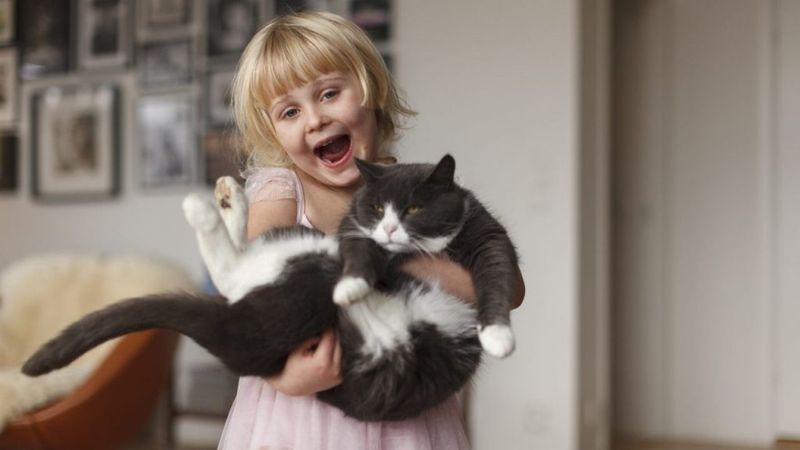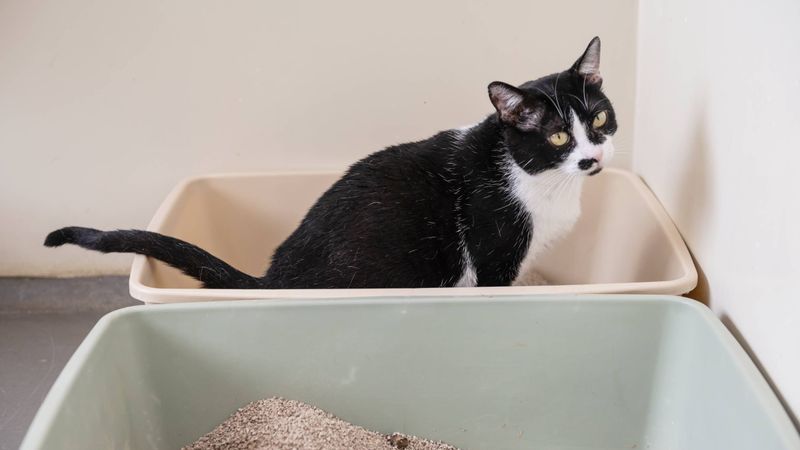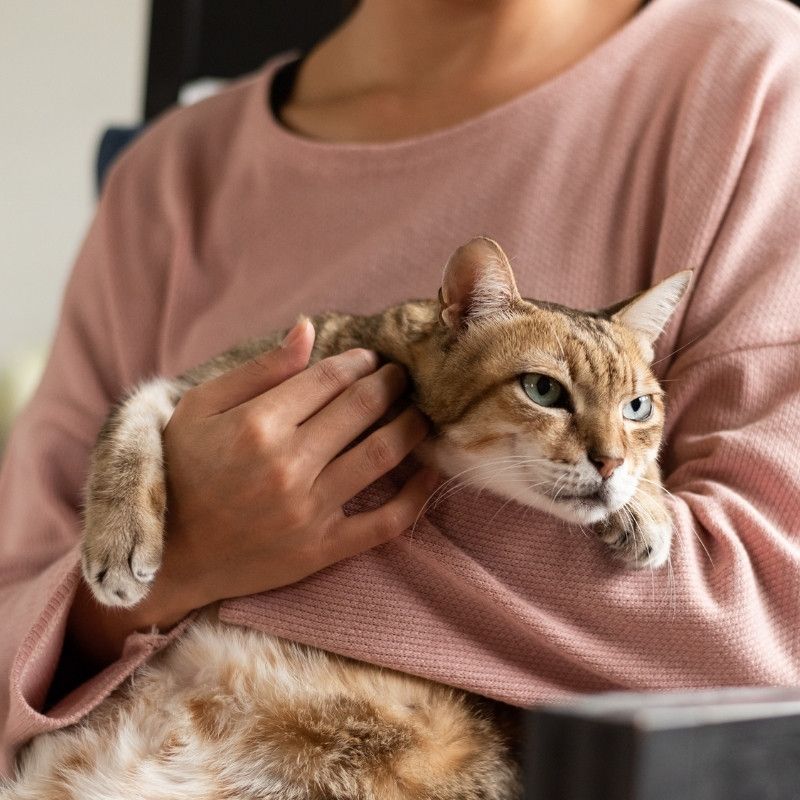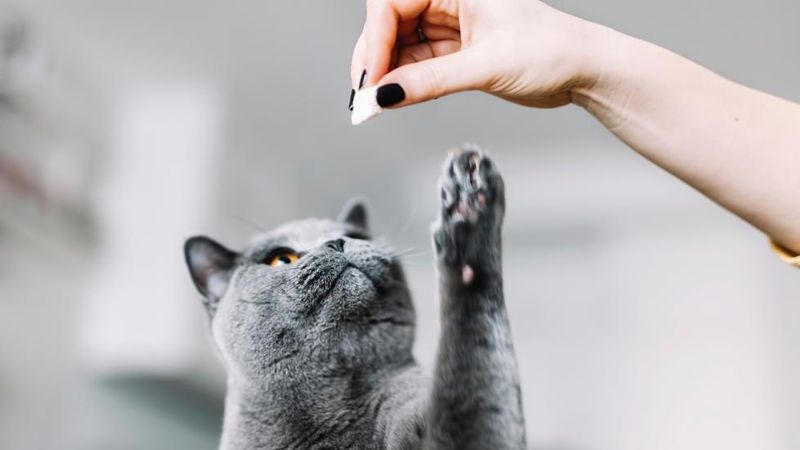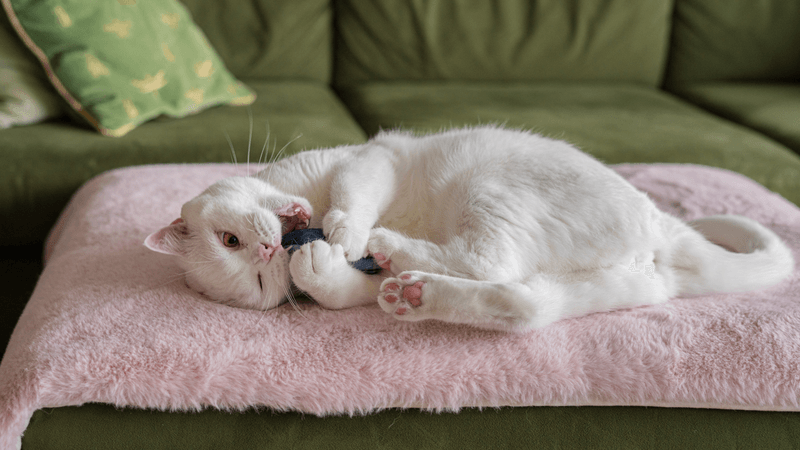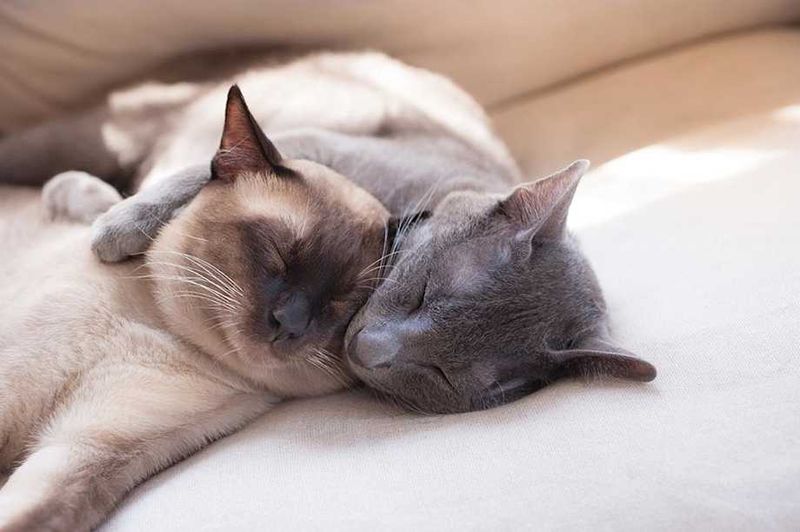📖 Table of Content:
- 1. Start With Socialization Early
- 2. Teach Mealtime Manners
- 3. Use Positive Reinforcement
- 4. Encourage Gentle Play
- 5. Respect Their Space—and Teach Them to Respect Yours
- 6. Keep the Litter Box Pristine
- 7. Handle With Care and Grace
- 8. Train Them to Basic Commands
- 9. Create a Calm, Enriching Environment
- 10. Groom Regularly, Even if They Don’t Need It
- 11. Lead With Love and Patience
Cats may come with a reputation for independence and sass, but that doesn’t mean they can’t be well-mannered companions. With the right guidance, patience, and a bit of feline psychology, your kitten—or even your older cat—can learn to be as polite and composed as any little lady or gentleman. The result? A delightful pet who charms guests, coexists peacefully with the household, and adds a touch of elegance to your everyday life.
Raising a respectful cat isn’t about enforcing rigid rules or stifling their personality. Rather, it’s about understanding their instincts, setting consistent boundaries, and gently encouraging positive behaviors. Think of it as mentoring a small, furry aristocrat—where every lesson you teach becomes part of their lifelong code of conduct. Whether it’s during meals, playtime, or simply how they ask for attention, the goal is to nurture a cat that’s both confident and considerate.
Below are 11 refined and realistic ways to help your feline flourish into a purring paragon of poise. These aren’t gimmicks or strict training routines—they’re practical habits you can start today, each one designed to build a mutual respect between you and your cat. So grab your cup of tea (or their favorite treats), and let’s get to shaping that miniature gentle-being.
1. Start With Socialization Early
Introducing your kitten to the world early on is like giving them a passport to good behavior. The more sounds, people, and environments they experience, the less likely they are to become anxious or aggressive as adults. Try inviting friends over, playing soft music, or letting them explore different rooms gradually. Confidence gained through early socialization lays the foundation for polite feline conduct later on. You’re not overwhelming them—you’re building their curiosity and resilience. Even older cats can benefit from gentle, paced social exposure if handled with care. A well-socialized cat will rarely lash out or panic in new situations, and that’s half the battle won.
2. Teach Mealtime Manners
Proper etiquette at mealtime can shape your cat’s overall behavior throughout the day. Feeding your cat at regular times helps reduce begging, food aggression, or anxious pacing. Instead of allowing them to jump on counters or paw at your plate, reinforce that their dish is their designated space. Calm behavior before meals should be rewarded, so they associate composure with being fed. If you’re consistent, you’ll soon see them waiting quietly like the polite little dinner guest they’re meant to be. Avoid feeding them human food—it not only spoils their appetite but also teaches bad habits. Structure and patience here will transform your kitchen into a dining room fit for feline nobility.
3. Use Positive Reinforcement
Nothing shapes feline behavior better than rewards for doing the right thing. While cats aren’t as driven by praise as dogs, they absolutely respond to treats, affection, or a play session when they’ve behaved well. Rather than punishing mistakes, ignore the behavior and redirect them toward something better. Timing is everything—offer the reward immediately so they connect the dots. Over time, your cat will start repeating good behavior to earn those positive outcomes. The result? A well-mannered cat who actually wants to be on their best behavior. Encouragement always leaves a more lasting impression than scolding ever will.
4. Encourage Gentle Play
Redirecting rough play is essential for raising a truly polite kitty. Instead of using your fingers as toys, opt for wand teasers, crinkle balls, or feather chasers. Every time your cat bites or scratches, calmly end the play session and walk away. This teaches them that roughness leads to the end of fun, reinforcing gentleness. Over time, they’ll learn that claws and teeth aren’t acceptable in play with humans. Playtime should be fun, but also a chance to model control and discipline in a safe setting. A cat that plays gently is a cat that greets children and guests without harm or fear.
5. Respect Their Space—and Teach Them to Respect Yours
Boundaries are a two-way street in any refined relationship, even between humans and felines. Respecting your cat’s safe zones (like their hiding spots or napping areas) helps them feel secure and builds trust. At the same time, teaching them where they’re not allowed—like countertops or desks—creates a respectful balance. Use gentle redirection, not shouting or squirt bottles, to discourage boundary crossing. Sticky tape, foil, or motion-sensing mats can offer passive deterrents without harm. When you both understand each other’s limits, harmony follows naturally. Think of it as setting the rules of a polite household—and everyone benefits.
6. Keep the Litter Box Pristine
There’s nothing undignified about being particular when it comes to cleanliness. Your cat’s litter box should be scooped at least once a day and thoroughly cleaned weekly. Cats are fastidious creatures, and a dirty box can lead to “accidents” that are really acts of protest. Make sure the box is placed in a quiet, low-traffic area where your cat can do their business in peace. Using the right type of litter also matters—some cats are especially picky about scent and texture. When the litter box is clean and inviting, your cat is more likely to use it consistently. Cleanliness is next to cattiness, after all.
7. Handle With Care and Grace
Lifting and petting your cat shouldn’t feel like a wrestling match. Instead, support their body properly and give them time to get comfortable with handling. Every touch should build trust—especially when it comes to sensitive areas like paws or the belly. Speak softly and move slowly, letting them come to you when they’re ready. The more positive experiences they associate with being touched, the more cooperative they’ll be in future vet visits or grooming sessions. Never force interaction; respect fosters willingness. A graceful cat is shaped by equally graceful human hands.
8. Train Them to Basic Commands
Contrary to popular belief, cats can learn commands—and doing so can make them feel empowered, not restricted. Start with easy words like “come” or “sit,” using treats or clicker cues to reinforce success. Keep sessions short and positive; repetition is key, but so is timing. Don’t expect perfection overnight—consistency and patience go a long way. Just a few minutes a day can build focus and mental stimulation. The result isn’t just obedience, but mutual understanding. It’s not about controlling your cat—it’s about building a shared language of respect.
9. Create a Calm, Enriching Environment
Your home should feel like a five-star retreat for your feline companion. Cats thrive on routine and serenity, so offer quiet places to nap, windows to gaze from, and toys that keep them mentally stimulated. Use vertical space—like shelves or cat trees—to give them safe perches. Background noise such as soft music or white noise can reduce anxiety. A stimulating environment reduces destructive behavior by meeting your cat’s natural needs. Think of enrichment as the finishing school of feline behavior—no curriculum, just creativity. A calm cat is a courteous cat.
10. Groom Regularly, Even if They Don’t Need It
Grooming is more than just coat care—it’s a bonding ritual. Begin slowly by brushing their back or sides for short periods and rewarding them after. Even short-haired cats benefit from regular brushing, as it reduces shedding and hairballs. More importantly, grooming builds tolerance for handling, especially around sensitive spots. Check their ears, trim their nails, and get them used to being touched all over. Make grooming a soothing experience, not a rushed chore. Every brushstroke is a lesson in trust and grace.
11. Lead With Love and Patience
At the heart of every well-mannered cat is a human who took the time to teach, guide, and love them through it all. Not every day will be perfect, but every moment of connection builds toward a more respectful relationship. Gentle corrections, consistent routines, and emotional awareness go a long way. Your cat may test limits—but they’re also watching how you respond. Choose calm over frustration, guidance over punishment. Over time, your cat will mirror your energy and intentions. With patience, your polite little lady or gentleman will flourish.
